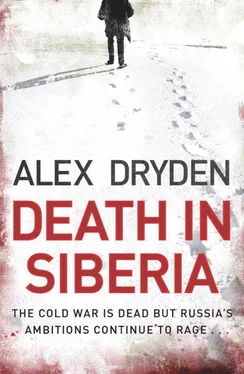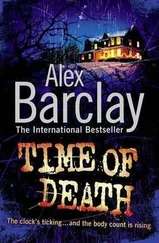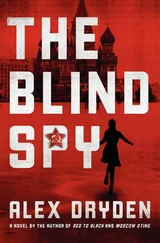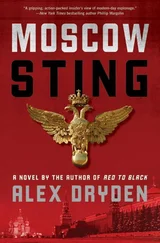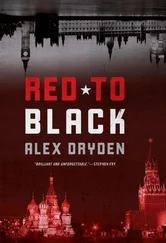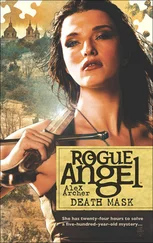She rested on the edge of the palliasse for a moment and he made no move to help her. Then she pushed her way through the pain to stand on her feet. She stood, panting slightly from the pain, but she was steady.
‘Let’s have some vodka,’ she said.
He got up from the stool and picked two cups from an upturned box and, clutching them and a vodka bottle in one hand, placed them all on a low table in the centre of the choom . Then he threw some wood into a wood burner and lit it. There was an icy wind coming under the flap of the choom , from the north. He thought from the smell of the wind that there would be snow tonight – and then he wondered how he had developed the sense to know that.
When the fire was blazing, he filled the two cups, gave one to her and raised his own. They both sipped from the cups until he put his down while she held hers, perhaps unable to bend easily to the low table. He then sat cross-legged on the floor. Anna continued to stand, as if to test herself and her strength.
‘In the late 1940s,’ Anna began, ‘our Professor Sakharov predicted that there was a possibility, theoretically in any case, of producing muon catalysed fusion at some time in the future. A muon is an unstable subatomic particle. It’s like an electron, but two hundred times bigger, or more. If a muon were to replace one electron in a hydrogen molecule, they would therefore be drawn at least two hundred times closer together. When they’re this close, the possibility of creating nuclear fusion is greatly enhanced.’
Petrov looked and concentrated and began to feel that the mystery – the ‘secret he didn’t know he possessed’, as Gannyka had told him the night he died – was closer to being revealed.
‘Fission and fusion are therefore two very different things. The word “fission” means “split apart”. In the case of normal nuclear reactors – or bombs – uranium atoms are split apart producing gigantic amounts of energy; millions of times more energy than any other type of fuel. But they also produce gigantic and unstable amounts of nuclear waste and, in the case of a damaged reactor, for example, or a bomb, they produce a huge amount of fatal radiation. Radiation from the bombs at Hiroshima and Nagasaki more than sixty-five years ago is still killing people. The disaster at Chernobyl will still be killing people in decades time. Perhaps in Japan too, from its recent reactor disaster.’
Now she sat down on the thin rug inside the choom , and faced Petrov directly. She was keen, he saw, to make him understand the point she was heading towards. She couldn’t cross her legs, with the gash in her thigh still not properly healed, but she kept them straight out and leaned against the stool Petrov had been sitting on.
‘Fusion,’ she continued, ‘is different. It fuses muons on to the electron in a hydrogen molecule. It can be done at room temperature, or even less, while thermonuclear fission requires extremely high temperatures.’
She sipped from the tin cup of vodka and this time placed it on the floor beside her.
‘However, it is difficult to produce muons in large enough quantities to make much of a difference. Another problem is that the muons decay away before they produce more than a few hundred nuclear fusion reactions. Muon nuclear fusion works in a laboratory, in other words, but not in a practical, commercial situation in order to produce the energy we actually need and use. And so, in 1957, an American scientist concluded that muon nuclear fusion would therefore be impractical as an energy source.’
Each of them felt the wind outside the choom pick up again from the north and some iced flakes scudded under the flaps at the entrance. When the gust had died down, Anna continued.
‘If a way could be found to bring it out of the laboratory and into the world, four things would result. First, it would be much cheaper than normal nuclear fission reactors. Second, it would produce almost no radioactive waste, perhaps none at all if it were properly efficient. Third, it would produce almost no greenhouse gases. Fourth, it would eliminate the need for fossil fuels altogether, including coal, oil and gas.’
Petrov thought about this extraordinary possibility for a moment. But then his mind returned to what the American professor had said in 1957.
‘And there’s been no progress?’ Petrov asked, ‘since the 1950s?’
‘None of any significant kind. There needs to be a cheap way to produce muons and that has never been found. Muons can only produce as much energy as it takes to produce that energy. The only things that can produce muons almost indefinitely – and therefore produce inexhaustible energy – are something called pions. But no method has been discovered to do this.’
‘And you’re going to tell me, I hope, what a pion is.’
‘A pion is also a subatomic particle – any one of three, in fact. There is effectively an endless supply of them. All the seas in the world produce an almost infinite number of pions. But how to make these pions produce muons – that is what scientists have been working on for more than sixty years. It is called an “almost success”. In other words, it’s useless.’
Anna sipped from the vodka cup again and looked back at Petrov once more.
‘If muon nuclear fusion could be realised by channelling ordinary seawater to produce an endless supply of muons, then a city such as Norilsk could be run from a building no bigger than a small house. All its factories, all its transportation systems, all the domestic use of a city of a hundred and seventy-five thousand people. There would be no danger of radioactive escape or of nuclear waste. All it would need is a pipe, carrying seawater, to the city. Or simply an energy line from a fusion centre based by the sea. Every car on the planet could be run on electricity provided by muon catalysed fusion. Safely, cleanly, without waste. Every village, town and city on the planet.’
Petrov stood. He realised he’d drunk half a cup of vodka. But he poured himself another and saw that Anna’s hand was stretched up towards him, with its cup also empty. Then he sat down again opposite her.
‘And this is what you believe Professor Kryuchkov had discovered? How to make muons from pions – from the sea! From seawater! From almost nothing!’ he said.
‘Yes.’
Petrov was bemused. He couldn’t understand what he was hearing, and yet he could. But there was one other thing at the back of his mind that now worked its way to the front. It was something that utterly and completely baffled him.
‘But if this discovery of Kryuchkov’s is so momentous,’ he said, ‘so world-changing, so beneficial to the planet, why does the Kremlin wish to conceal it? Why have they killed him? Why do they want to deny his discovery to themselves, let alone to the world?’
BURT MILLER STOOD on the shingle beach on Cougar’s rented island and looked towards the east – the Barents Sea and, beyond that, the Kara Sea, and then the mouth of the Yenisei river, three days’ journey from where he stood. The tenth of June had come and gone and Anna Resnikov had not made the first rendezvous.
Larry stood beside him, also looking into the blue expanse. The sun was low, but bright, the sea calm and empty of vessels. But the chill was intense. It was just after two o’clock in the morning.
‘The State Department has heard from our ambassador in Moscow,’ Burt murmured, barely audibly. ‘Pressure has been applied and it’s been partially successful.’
‘What’s the news?’ Larry asked his boss.
‘The Russians have released Eileen and Sky. That’s their concession so far. But they’re holding Clay in Krasnoyarsk.’
Читать дальше
